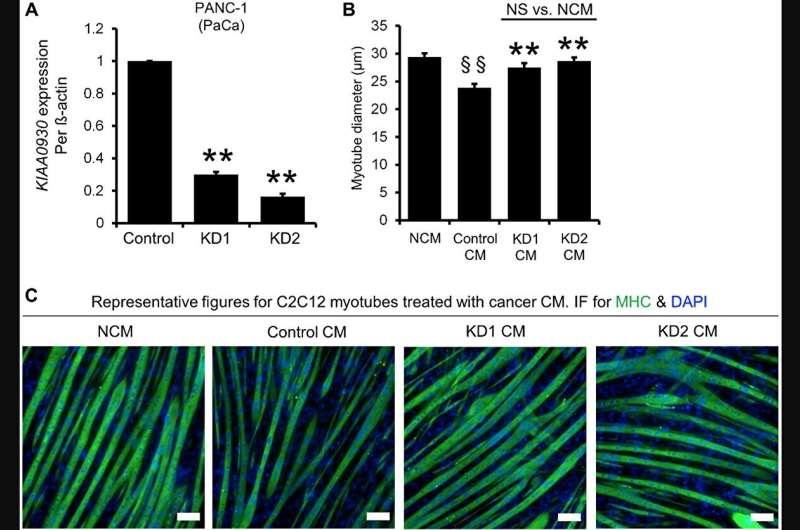This article has been reviewed according to Science X's editorial process and policies. Editors have highlighted the following attributes while ensuring the content's credibility:
fact-checked
peer-reviewed publication
proofread
KIAA0930: A cachexic phenotype inducer in cancer cells

A new research paper was published in Oncotarget, titled "The uncharacterized transcript KIAA0930 confers a cachexic phenotype on cancer cells."
Patients with cancer cachexia have a poor prognosis and impaired quality of life. Numerous studies using preclinical models have shown that inflammatory cytokines play an important role in the development of cancer cachexia; however, no clinical trial targeting cytokines has been successful. Therefore, it is essential to identify molecular mechanisms to develop anti-cachexia therapies.
In this new study, researchers Takahiro Yamakawa, Guoxiang Zhang, Liza Bengrine Najjar, Chun Li, and Keiichi Itakura from the Beckman Research Institute of City of Hope identified the uncharacterized transcript KIAA0930 as a candidate cachexic factor based on analyses of microarray datasets and an in vitro muscle atrophy assay.
"We here report the initial characterization of KIAA0930," say the researchers.
While conditioned media from pancreatic, colorectal, gastric, and tongue cancer cells caused muscle atrophy in vitro, conditioned medium from KIAA0930 knockdown cells did not. The PANC-1 orthotopic xenograft study showed that the tibialis anterior muscle weight and cross-sectional area were increased in mice bearing KIAA0930 knockdown cells compared to control mice.
Interestingly, KIAA0930 knockdown did not cause consistent changes in the secretion of inflammatory cytokines/chemokines from a variety of cancer cell lines. An initial characterization experiment showed that KIAA0930 is localized in the cytosol and not secreted from cells.
"These data suggest that the action of KIAA0930 is independent of the expression of cytokines/chemokines and that KIAA0930 could be a novel therapeutic target for cachexia," conclude the authors.
More information: Takahiro Yamakawa et al, The uncharacterized transcript KIAA0930 confers a cachexic phenotype on cancer cells, Oncotarget (2023). DOI: 10.18632/oncotarget.28476

















